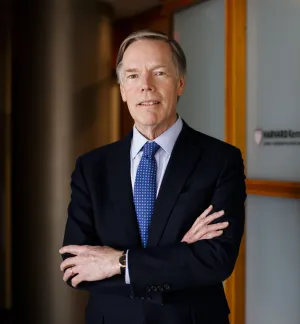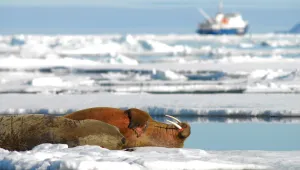
Published by: The House Foreign Affairs Subcommittee on Europe, Eurasia, Energy and the Environment
Mr. Chairman and Ranking Member Kinzinger, thank you for the opportunity to testify today on our vital alliance with Europe.
Maintaining U.S. leadership in the NATO Alliance and sustaining the critical relationship between the U.S. and the European Union will continue to be among the most vital strategic aims of the United States in the decade ahead. Both of our political parties and the great majority of Americans in recent public opinion polls support a continuation of American leadership in NATO. We should also continue to view the over 500 million people who live in the European Union as our allies, friends and economic partners.
In my own Foreign Service career as U.S. Ambassador to NATO, Ambassador to Greece and Under Secretary of State, I saw time and again how the European allies and Canada are critical to America’s security in a dangerous world. That remains true today as it will surely be in the future.
Our Common History
During the seventy-four years since the Allied victory in the Second World War, no part of the world has been more important to the security and prosperity of the United States than Europe.
America’s post-war leaders—Truman and Eisenhower, Marshall, Acheson, Dulles and others— understood that our experiences in the First and Second World Wars and the advent of the Cold War compelled us to think in new ways about how to defend America in a dangerous world.
They resolved that the United States could not, once again, retreat into isolation after the supreme effort we had made to defeat the fascist powers. We would have to lead, on a permanent basis, as the strongest economic, political and military power in the world. In order to do so, their great insight was that the U.S. could no longer defend its own borders without deploying American land, naval and air forces permanently in Europe well beyond the U.S. itself. This was a decision based on our own self-interest. It permitted us to defend our security and that of our allies in Europe and Canada who shared our most important values—democracy, human and religious rights, the rule of law, and a belief in free markets.
This strategy led the U.S. to take two historic decisions, on a bipartisan basis, in the years after World War Two.
The first was to create the North Atlantic Treaty Organization (NATO) here in Washington seventy years ago next week in April 1949. For the first time in its history, the U.S. committed to help defend the security of allied countries on a permanent basis.
The second was to encourage the European countries, struggling to recover from war, to integrate their economies and political future in a new supranational effort that led from the Coal and Steel Community of the late 1940s to the Treaty of Rome in 1957, the Common Market, the Maastricht Agreement and the creation of the European Union we know and admire today.
Every American President from Truman and Eisenhower to George W. Bush and Barack Obama shared the common strategic view that the success and freedom of Europe was critical to our values, interests and success in the world.
In creating and leading NATO over the last seven decades, American leaders accepted the new reality that the U.S. would be stronger and more secure in alliance with others. In supporting European integration, the U.S. helped France and Germany to achieve a historic and permanent reconciliation. Together, NATO and the European Union became the twin standard bearers of the free world we worked to sustain.
Through the decades, the U.S., Canada and Europe helped to create other important multilateral institutions such as the Organization for Economic Co-operation and Development (OECD), the Organization for Security and Co-operation in Europe (OSCE), The General Agreement on Tariffs and Trade (GATT) and many others that helped to form a network for democracy, human rights, free trade and free markets.
READ FULL REPORT HERE:
Burns, Nicholas. “The Historic Alliance between the United States and Europe Testimony to the House Foreign Affairs Subcommittee on Europe, Eurasia, Energy and the Environment.” March 26, 2019



